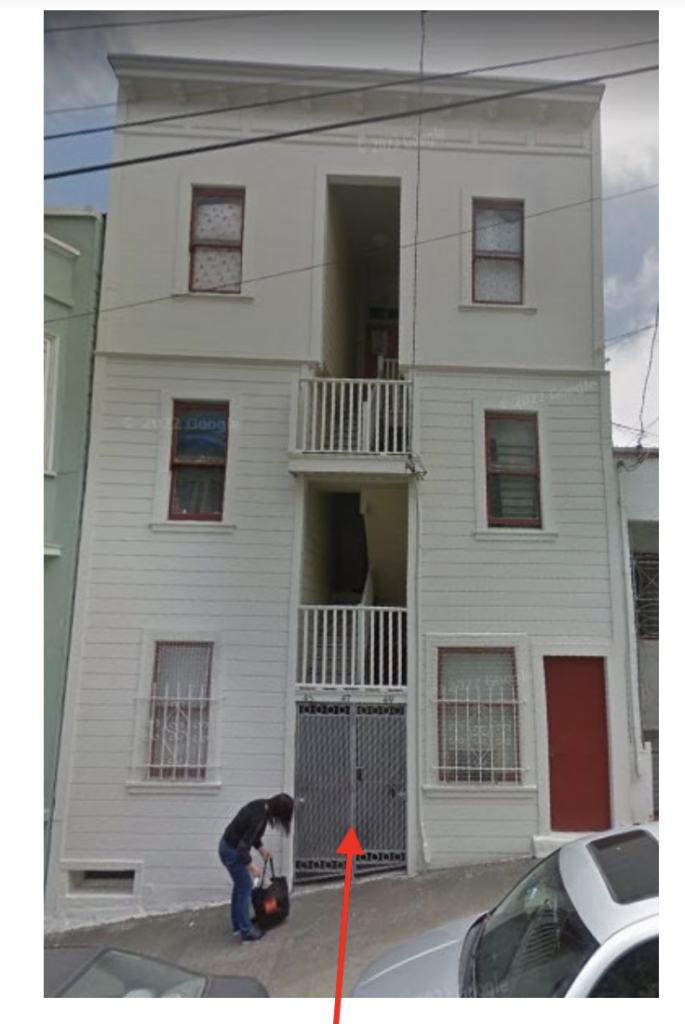The Planning Commission Thursday declined to approve the plans for a major renovation of a building where 11 Chinese immigrants were evicted, instead using the discretionary review process to impose a list of new conditions.
The 4-1 vote came after a hearing lasting almost four hours. Dozens of speakers, many of them addressing the panel in Chinese, urged the commissioners not to allow what would normally be a fairly routine alteration of an older building.

In the process, the commission (at this point controlled by appointees of the supes, since the mayor has been slow to fill two seats) made clear that the epidemic of evictions by people who buy buildings full of low-income tenants and then toss them out is unacceptable.
The plans included expanding the building envelope into the existing back yard, which the opponents said would reduce the amount of very limited mid-block open space in the Upper Chinatown neighborhood.
But the community opponents, and some of the commissioners, had a larger concern: The owners of the building used an owner move-in eviction to displace longtime tenants and eliminate rent-controlled housing units—and are using a state law that pre-empts local law to legalize an in-law unit that will not be subject to rent control.
The new owners want to expand the size of the building because, as Lindsey Huston, one of the owners, put it, she and her partner need more space for an office to work from home.
“This was a space multi-family members lived in far smaller space than what you are moving into,” said Commission President Kathrin Moore. “For those of us in the middle of one of the most brutal times in my adult life, this is a very tough project.”
Several of the commissioners said they were worried that the owners, like so many others who have bought property in the city and evicted tenants, would move out, flip the place, or try to rent the renovated units at market rate.
Comissioner Gabriella Ruiz noted that the public testimony included “a lot of powerful stories about how serious the issue of evictions is.” More than 50 people, mostly low-income Chinese people, have been evicted from that neighborhood, she said.
Lindsey Houston said her intention was to stay in the building. She said that when she and her mother had bought the place, they offered to negotiate buyouts with the tenants, who got a lawyer. “They wanted several hundred thousand dollars,” she said.
The family decided not to pay that amount, and instead filed for an owner-move-in eviction, which would require a much smaller statutory relocation fee.
Ultimately, faced with a certain eviction (OMIs are legal and there is no valid defense) the tenants agreed to accept a smaller payout and they have all found other housing, she said.
The bottom line: When the Hustons bought the building, they knew there were low-income tenants living there, and that one way or another they were going to displace them.
Ruiz said: “I’m having a hard time feeling confident that the people evicted have stable affordable housing … my main concern, and the issue goes far beyond this project, is that we are seeing people buy properties and flip them, they view San Francisco as a piggy bank. It’s up to talk about this issue at hand, not to see housing as a commodity.”
Commissioner Theresa Imperial said she was concerned that the Hustons were using the state law to legalize an ADU. Several commissioners asked if the city could mandate that the new ADU be subject to rent control; the answer, the city attorney on duty said, was no.
“I do not like the state ADU,” Moore said.
The planning staff, and Director Rich Hillis, insisted that the project complied with all existing planning codes.
Imperial said that the project might be technically code compliant, but “the fact is that families are not living there any more.”
Commissioner Sue Diamond said she was fine with the project. The other four members present had problems.
They insisted that the project be scaled back, and that the owners provide the city with contact information for the former tenants, so that, in the words of Ruiz, “if the owners move out, we can reach out and tell the previous tenants that they have the right to move back in” at the old, controlled rent.
The commissioners demanded that the planning staff monitor the building to keep track of what happens.
The Hustons, who clearly had the money to pay $1.5 million for the building and another $350,00 for the renovations, may decide to stay. If they decide to leave and re-rent the place at much higher prices, or sell to someone else who does that, it would violate city law—but this happens all the time, and nobody ever checks.
Maybe 45 Bernard will be different.





